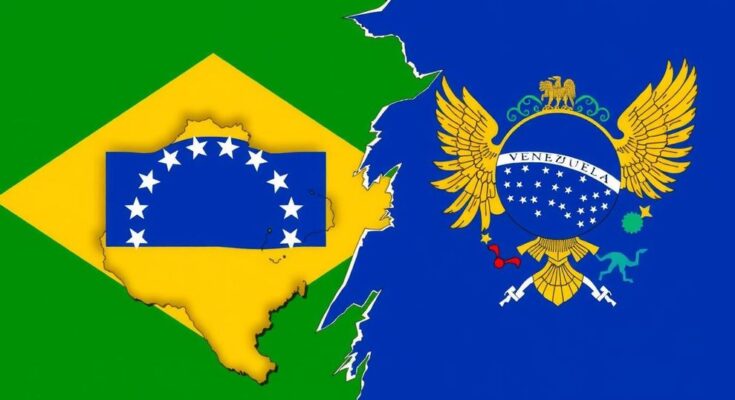Venezuela has recalled its ambassador from Brazil after Brazil vetoed its bid to join the BRICS group, leading to increased tensions between the nations due to accusations of electoral misconduct by Venezuelan President Maduro and Brazilian criticism of this situation.
Venezuela has officially recalled its ambassador from Brazil following a diplomatic dispute prompted by Brazil’s veto of Venezuela’s application to join the BRICS alliance of major developing nations. This diplomatic reprimand, announced by the Venezuelan Foreign Ministry, criticized Brazilian officials for their perceived interventionist remarks and for obstructing Venezuela’s candidacy. The tensions continue to escalate as Brazil’s President Luiz Inacio Lula da Silva has refused to acknowledge Venezuelan President Nicolas Maduro’s recent election victory, urging the release of official electoral results amid accusations of electoral fraud. The Foreign Ministry referenced statements by Brazil’s foreign policy adviser, Celso Amorim, who claimed that Venezuela had breached trust with BRICS partners, suggesting an alignment with U.S. interests in his remarks. Moreover, following the electoral irregularities, which led to protests and significant unrest within Venezuela, the atmosphere remains charged between the two nations, further complicated by the plight of Venezuelan opposition leader Edmundo Gonzalez, who recently fled the country.
The BRICS alliance, which includes Brazil, Russia, India, China, and South Africa, expanded its membership in January 2024 to include additional nations such as Iran, Egypt, Ethiopia, and the United Arab Emirates. Venezuela’s intent to join the group was seen as a part of its broader strategy to integrate into a bloc of nations that advocate for the interests of developing countries. However, allegations of electoral misconduct during Maduro’s re-election and Brazil’s subsequent denial of Venezuela’s BRICS membership have strained relations significantly. The political environment in Venezuela is further complicated by human rights concerns and international criticism regarding the country’s governance and treatment of dissent.
The diplomatic fallout between Venezuela and Brazil underscores the complexities surrounding regional politics and the ongoing challenges facing Venezuelan governance. The tensions highlight the impact of electoral legitimacy and international relations on Latin American diplomacy, especially in the context of alliances like BRICS. As the situation evolves, it remains critical for both nations to address the underlying issues that have exacerbated their discord, while also considering the broader implications for Latin American unity and the rights of the Venezuelan populace.
Original Source: www.aljazeera.com




